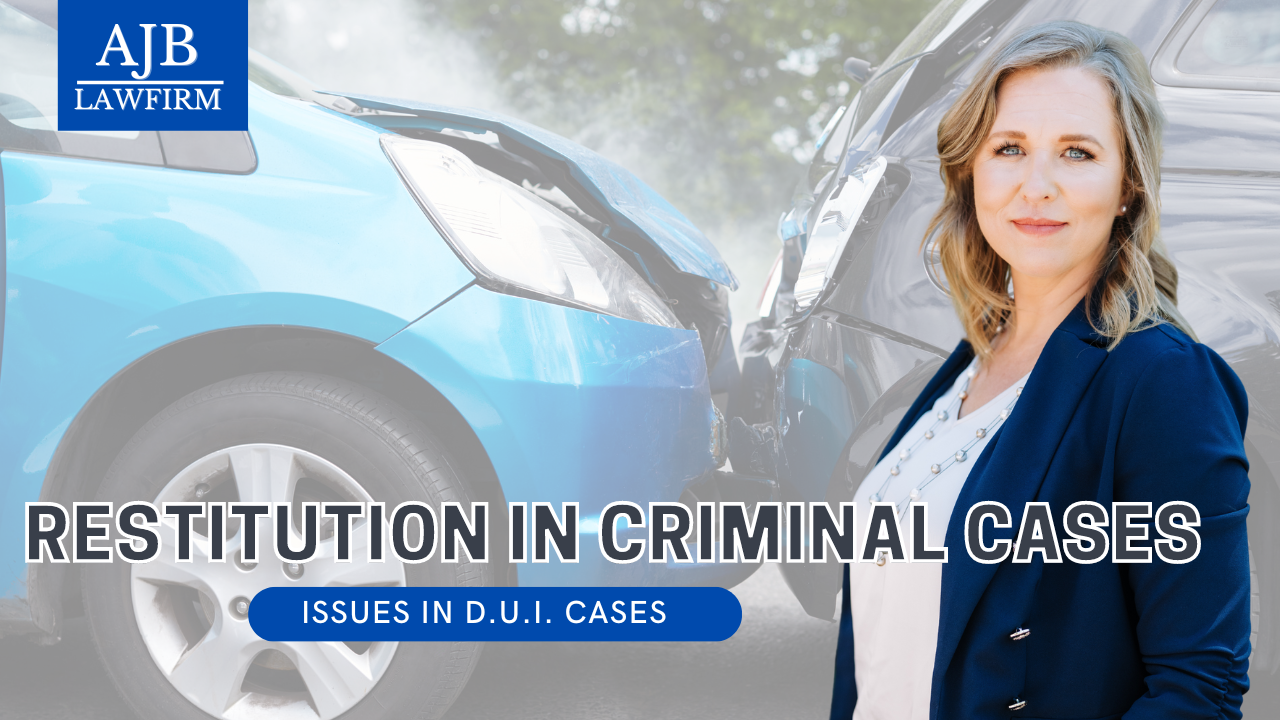The Complexities of Restitution Requests in DUI Cases
Navigating through the maze of criminal law is a complex task, but it becomes even more challenging when restitution requests are on the table. Particularly in DUI cases, where victims may claim economic loss due to the defendant's actions, restitution can be a contentious issue. This blog post aims to dissect the intricacies of such requests and why they may not be as straightforward as they seem.
The Basics of Restitution
In Arizona, restitution serves to make the victim "whole" again by compensating them for any economic losses they may have incurred due to a criminal act. The court will typically ask for evidence substantiating the loss claimed and assess whether it directly results from the defendant's actions. For a restitution claim to be valid, three conditions must be met:
The loss must be economic.
The loss would not have occurred but for the defendant's criminal conduct.
The defendant's criminal conduct must be the direct cause of the economic loss.
The Thorny Issue of Causation
Not all DUI cases that involve an accident automatically qualify for restitution. The courts take into account whether the DUI directly caused the alleged economic losses or were the result of another factor, such as another driver's actions.
The Case of Vehicle Loss
Let's consider a hypothetical scenario: The victim claims the loss of a car valued at $4,200 and provides only their testimony as evidence, without any paperwork like vehicle valuation or repair estimates. Such a lack of documentary evidence raises questions.
If the victim's testimony is inconsistent—perhaps about the amount they paid for the vehicle or how much they still owe—this undercuts the reliability of their claim. The court may find that the restitution request does not meet the necessary legal standards without credible evidence.
The Issue with Loss of Inventory
In another example, imagine a victim claiming the loss of inventory due to an inability to work following the accident. If the claim is supported solely by the victim's word or a spreadsheet made by a family member, without any sales receipts or medical records, then it lacks the weight of verifiable evidence.
The State has the burden to prove economic loss, and without concrete evidence, it fails to meet that burden. The restitution request, in this case, would be speculative and subject to challenge.
The Numbers Must Add Up
Restitution is a crucial aspect of the justice system that aims to make victims whole. However, for the process to serve its purpose effectively, the claims made must be substantiated by reliable and verifiable evidence. When dealing with restitution in DUI cases, it's not just about proving that an economic loss occurred, but also establishing a direct link to the defendant's criminal conduct.
When the evidence is inadequate or when the numbers don't add up, courts are likely to question the sufficiency and credibility of the restitution request. After all, restitution should be both fair and just—not only for the victim but for the defendant as well.
